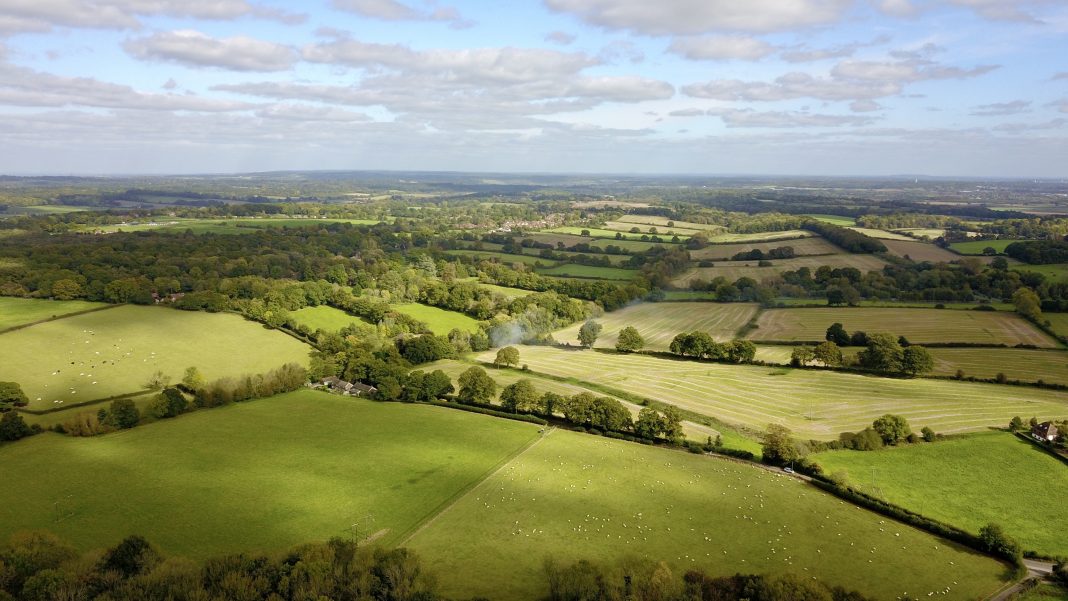We hear from ClieNFarms, an Innovation Action project funded by the European Commission to support the European Green Deal and achieve climate-neutral farming across Europe’s agricultural industry by 2050
Farmers play a critical role in ensuring food sustainability. They are responsible for producing the food we eat, but farming practices can significantly impact the environment and the long-term availability of resources. Although agriculture contributes 10.3% of the EU’s greenhouse gas emissions, it has strong potential for climate mitigation through soil carbon sequestration and storage, albedo effects, and the reduction of greenhouse gases etc. (1)
More real-life experiments, clarification, and support are required for climate neutrality and climate-resilient farming. One recent example is the EU carbon removal certification framework proposal, which ‘aims to scale up carbon removal activities and fight greenwashing by empowering businesses to show their action in this field’.(2) As well as being an essential initial step, the proposal further solidified the importance of farming practices and the need for sustainable carbon farming solutions.
What is the ClieNFarms project?
ClieNFarms is a four-year Innovation Action project funded by the European Commission to support the European Green Deal. The general aim of ClieNFarms is to co-develop and upscale systemic, locally relevant solutions to achieve climate-neutral and climate-resilient sustainable farms across Europe.
Funded under the European Green Deal and supporting the Farm2Fork strategy, the ClieNFarms project wants to demonstrate, evaluate, and improve technical, organisational, and financial solutions at farm level to contribute to achieving climate neutrality in European agriculture by 2050. Coordinated by INRAE, the 33-partner consortia will work in a multi-actor approach, interactively integrating and improving existing solutions to achieve economically viable business models in farming systems, by involving farmers, extension services, agri-food businesses, policymakers, banks, and citizens.
The dissemination of sustainable carbon farming solutions is critical, as indicated in the recent IPCC climate report (3): ‘The solution lies in (…) integrating measures to adapt to climate change with actions to reduce or avoid greenhouse gas emissions in ways that provide wider benefits’. Some farmers have begun implementing these solutions, but there is an urgent need to dramatically increase adoption to help meet the EU 2030 targets and achieve net climate neutrality.
How will the ClieNFarms project facilitate climate-neutral farming?
ClieNFarms can boost the adoption of sustainable practices and agricultural knowledge transfer through its demonstrative approach. This case-study structure will empower farmers and support the smooth dissemination and replication of tested innovations. These are called the I3S (Innovative Systemic Solutions Space), a network of twenty case-studies (crops, cattle, dairy, special crop productions, etc) where systemic innovative solutions will be tested and evaluated using up-to-date modelling approaches and multicriteria assessment tools. The selected solutions should avoid yield or product quality reduction. In addition, proposed innovative solutions will be tested on their climate-neutral impact, biodiversity, and water footprint, among others, to support a holistic view of the sustainability concept. The goal is to improve existing solutions and achieve economically viable business models in farming systems through a multi-actor approach.
To avoid the one-size-fits-all approach, the project will facilitate participation and consider the local specificities run on each I3S. As part of a one-day event, for example, this creative arena will bring together farmers and other key stakeholders that form part of the farming ecosystem (such as extension services, banks, agrifood chain businesses, and policymakers). Together, the group will have the opportunity to discuss solutions (technical, organisational, financial) and therefore move closer to achieving climate-resilient and climate-neutral farming systems.
To map the changes that might occur by implementing these solutions, ClieNFarms will use remote sensing data (e.g., Sentinel 1 and 2) and derived products (e.g., the Copernicus Land Surface High-Resolution Phenology service) as one of the proposed MRV tools (Monitoring, Reporting, Verification). The project will also develop a prototype of a carbon offset platform to create a better financial link between the actors of the whole food value chain – from farmers to retailers—including the food and the energy economic fields.
The different elements of this platform will be transparent and truthful and use different numerical and computing solutions. The involvement of the value chain and other sectors remains the most impactful path for knowledge exchange and innovation development. To help with this, an upscaling toolbox will be developed to help replicate single farm prototypes to an entire region or agri-food chain, with a strong focus on the economic business model.
Change is a question of capacity building. The different solutions will be recorded and shared in a solutions hub. This will create capacity-building tools, integrating farmers’ testimonials and practical solutions to reach climate neutrality. As part of the European Green Deal, strong links with sister projects will also enable a unified approach and more decisive actions for change.
Overall, the targets for climate neutrality within European agriculture reflect farmers’ critical role in ensuring food sustainability and the need for climate-smart agricultural practices. By developing innovative tools and promoting the adoption of sustainable farming practices, the ClieNFarms project will be a key player in climate change mitigation, supporting a sustainable European farming sector and helping it reach the targets set by the EU.
References
- EEA (2019), Annual European Union greenhouse gas inventory 1990-2017 and Inventory Report 2019
- European Commission (2022), Proposal for a Regulation on an EU certification for carbon removals
- IPCC (2022), Climate Change 2022: Mitigation of Climate Change. Contribution of Working Group III to the Sixth Assessment Report of the Intergovernmental Panel on Climate Change [P.R. Shukla, J. Skea, R. Slade, A. Al Khourdajie, R. van Diemen, D. McCollum, M. Pathak, S. Some, P. Vyas, R. Fradera, M. Belkacemi, A. Hasija, G. Lisboa, S. Luz, J. Malley, (eds.)]. Cambridge University Press, Cambridge, UK and New York, NY, USA. doi: 10.1017/9781009157926

This work is licensed under Creative Commons Attribution-NonCommercial-NoDerivatives 4.0 International.


